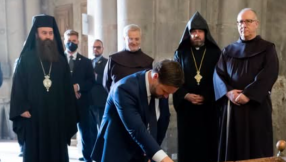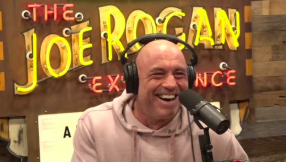
The Australian Christian Lobby (ACL) has voiced strong opposition to potential new Victorian laws designed to protect people from coercive control within cults, arguing that such measures could inadvertently target legitimate faith communities.
Appearing before a parliamentary inquiry into cults and organised fringe groups, representatives from the ACL and the think tank Freedom for Faith cautioned that the proposed legislation could blur the line between harmful coercion and genuine religious devotion.
Jasmine Yuen, the ACL’s Victorian director, told the inquiry that existing criminal laws already address conduct associated with cults and that additional legislation would be “very dangerous”. She warned that any attempt to define or regulate “coercive behaviour in faith-based institutions” risked misclassifying mainstream Christian churches as cults.
“From a theological perspective, faith and practices are inseparable,” Yuen said. “Separating the two risks unfairly misclassifying legitimate faith communities – particularly Christian churches – as cults, whether through misunderstanding or deliberate misrepresentation.”
Yuen argued that such confusion could lead to unnecessary litigation or reputational harm against churches whose doctrines are simply out of step with popular opinion. She cited examples such as traditional Christian teachings on marriage, the end times, and the renewal of creation as beliefs that could be misinterpreted as “cultic” by critics.
Instead of introducing new laws, the ACL has called for greater investment in education and preventative measures to help individuals recognise and avoid harmful groups without imposing restrictions on religious freedom.
The inquiry, chaired by Labor MP Ella George, was told that many witnesses had called for legislative action against coercion by “high-control groups” due to its damaging impact on individuals and families.
However, when Liberal MP Rachel Westaway asked whether there was scope for legislation to protect people already “lured” into cults and unable to make informed decisions, Yuen responded bluntly: “No.”
Mike Southon, executive director of Freedom for Faith, echoed similar apprehensions, noting that members of faith communities were deeply uneasy about the inquiry’s broad definition of a cult.
“There is palpable fear in our faith communities that we’ll end up with a process where deep devotion to your faith is considered coercion,” Southon said. “Where personal sacrifice and giving is deemed abuse, commitment to a single universal truth is labelled intolerance, belief in eternal consequences is coercion, and traditional morality is declared to be harm.”
He warned that in such an environment, “any religion could be declared a cult, investigated by a commission or dobbed into a hotline.”
The parliamentary inquiry, which also heard from cult experts and survivor groups such as The Religious Trauma Collective and Cult Information and Family Support, is tasked with finding a balance between safeguarding vulnerable individuals and preserving the right to religious freedom.
Both the ACL and Freedom for Faith acknowledged that genuine cults do operate within Victoria but insisted that mainstream religious groups should not be caught in the crossfire of efforts to regulate them.
Committee chair Ella George stressed that religious freedoms had been a “top of mind consideration” for the inquiry since its inception. The committee is expected to deliver its findings to the Victorian Parliament by 30 September 2026.
The exchange highlights a broader national debate about where to draw the line between protecting individuals from harmful manipulation and respecting freedom of belief. Critics of the ACL’s position argue that the absence of specific laws against cultic coercion leaves vulnerable people without sufficient protection, while faith groups warn that ill-defined legislation could criminalise religious conviction itself.
As Victoria continues to navigate this delicate issue, the challenge remains clear: how to curb the influence of exploitative organisations without compromising the fundamental right to practise one’s faith freely.













